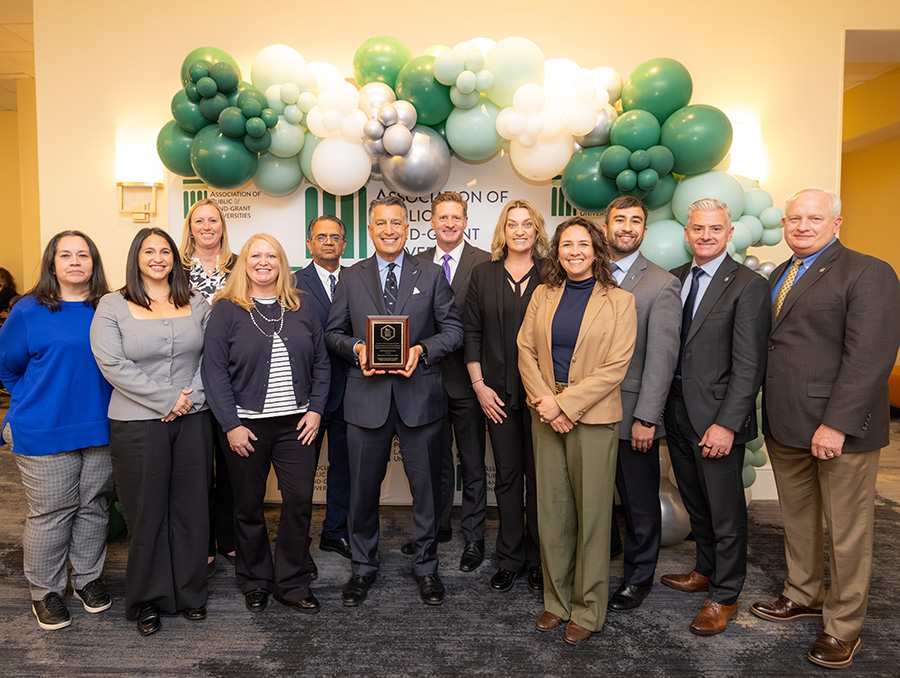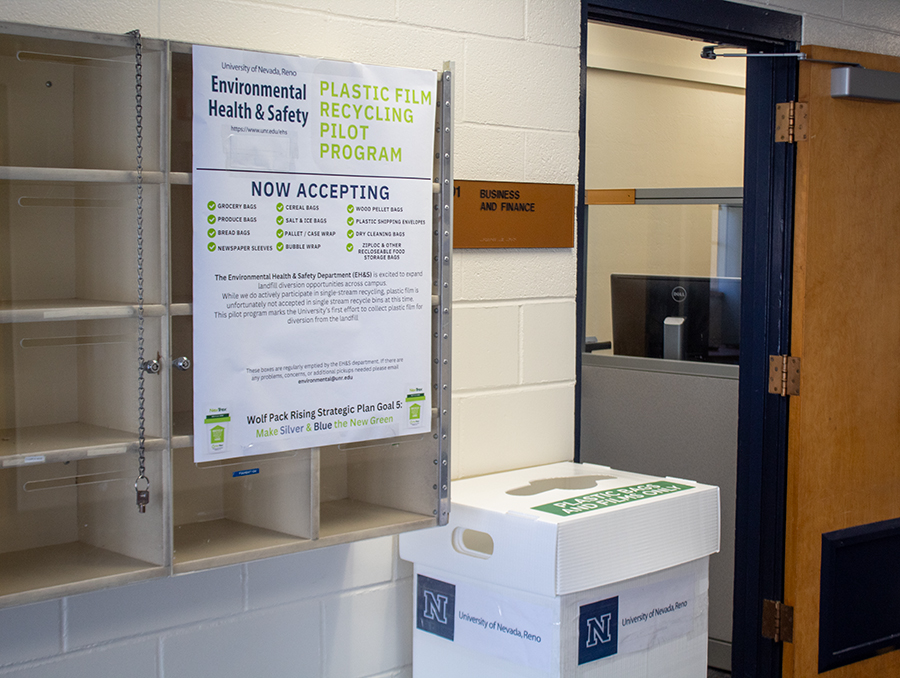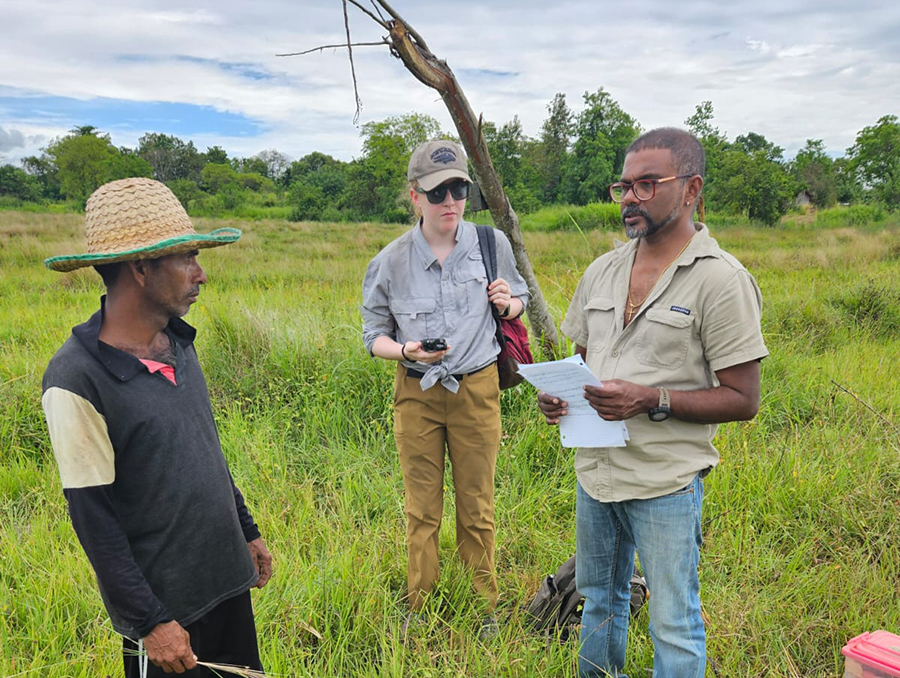The University of Nevada, Reno played a prominent role at the Association of Public and Land-grant Universities (APLU) Annual Meeting in Philadelphia this month, where higher education leaders from across North America gathered to shape the future of public universities. The event focused on advancing student success, research, and economic impact – and the University’s contributions were among the highlights.
University President Brian Sandoval was one the select leaders featured in APLU’s welcome video, "What Inspires Public & Land-Grant University Leaders in Their Work." His inclusion highlighted the University’s commitment to advancing access, innovation and community engagement.
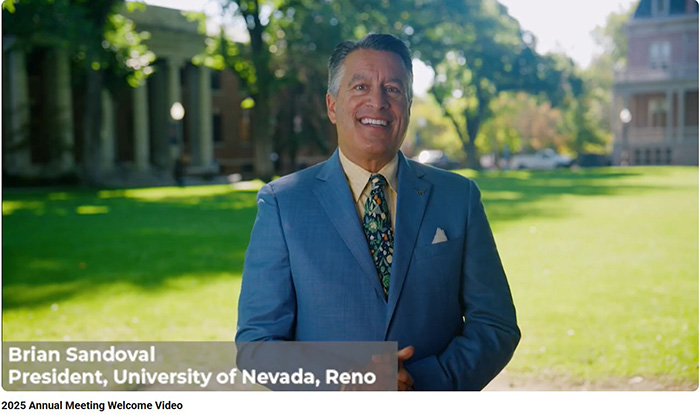
The University was also celebrated as one of only six institutions this year to receive the Innovation and Economic Prosperity (IEP) designation award, recognizing universities that make the highest impact on their region’s economy. The University joins 94 North American institutions with this distinction, underscoring its role as a driver of economic development and innovation in Nevada and beyond.
“This national recognition honors our commitment to driving economic engagement through talent development, innovation and community impact,” President Sandoval said. “I’m incredibly proud of our faculty, staff and partners who made this possible. This designation not only enhances our presence as a national university but reaffirms our long-standing dedication to strengthening Nevada’s economy and improving the quality of life for all Nevadans.”
The University’s success in earning the IEP designation stems from transformative programs and faculty-led initiatives that have strengthened Nevada’s economy and workforce. Through its Land Grant 2.0 vision, the University expanded access to education and training statewide, including programs for tribal and rural communities, bilingual STEM pathways through the Latino Research Center, and healthcare workforce development that boasts a physician retention rate of 75% – well above the national average. Extension programs alone trained hundreds in agriculture and fire science, while Project ECHO Nevada connected specialists with rural providers, hosting more than 3,400 healthcare professionals in 264 sessions in 2023.
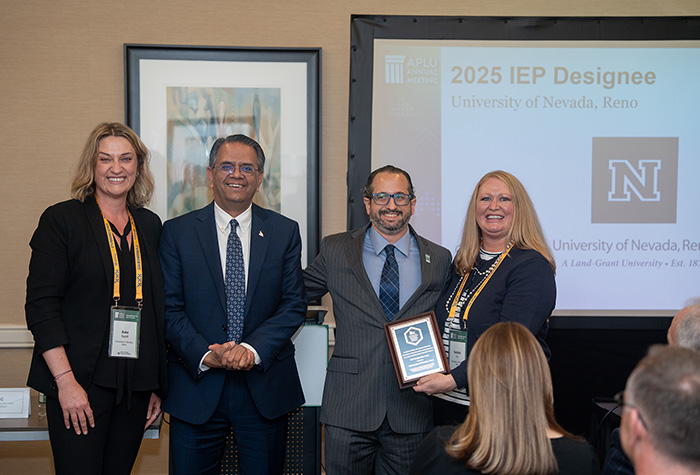
Innovation has also fueled Nevada’s growth. Since 2015, the Nevada Center for Applied Research and the Innevation Center – working alongside the Governor’s Office of Economic Development and the Economic Development Authority of Western Nevada – have helped affiliated startups raise $345 million in venture capital and create hundreds of jobs. Manufacture Nevada has delivered $800 million in increased or retained sales and supported 11,000 jobs statewide. Entrepreneurship programs like the Ozmen Center’s Sontag Competition and LaunchNevada have cultivated student innovators, while commercialization efforts through the Nevada Research & Innovation Corporation have accelerated technology transfer and industry partnerships. These achievements highlight the University’s pivotal role in driving innovation, preparing a skilled workforce and advancing broad-based economic growth.
“The economic engagement self-study and IEP application process has been an instrumental tool for our University leaders to think more broadly and critically about its role in economic engagement,” Mridul Gautam, senior vice president for research and innovation, said.
In addition to these honors, President Sandoval moderated one of the meeting’s most anticipated and engaged sessions: The Future of Intercollegiate Athletics: A Conversation with NCAA President Charlie Baker. The discussion explored the evolving landscape of college athletics, including governance, student-athlete welfare, and the future of competition.
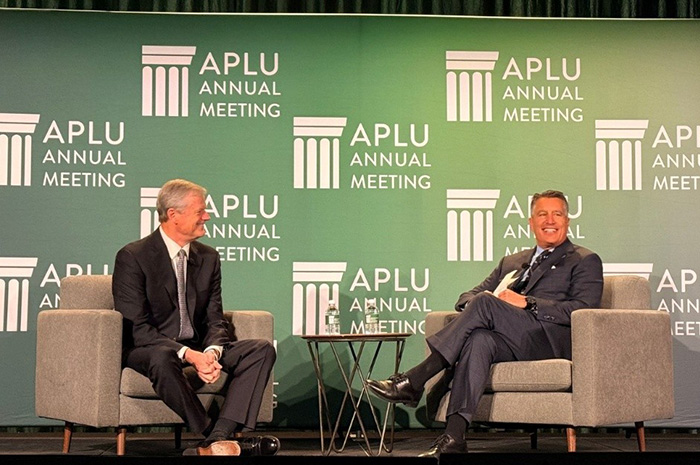
“I had the pleasure of joining NCAA President Charlie Baker on stage at the Association of Public and Land-grant Universities Annual Meeting in Philadelphia for a conversation about the future of Intercollegiate Athletics,” Sandoval said. “From NIL frameworks to conference realignments and evolving governance models, the landscape of college sports is changing rapidly. I'm grateful to the APLU for convening this important dialogue. The future of athletics in higher education is being shaped now, and I'm proud to be part of the conversation.”
The APLU Annual Meeting continues to serve as a platform for collaboration and thought leadership, and the University’s active participation reflects its dedication to shaping the future of higher education and strengthening its impact on students, communities and the economy.
Why APLU Matters
Founded in 1887, the Association of Public and Land-grant Universities is the oldest higher education association in North America, representing more than 250 public research universities. APLU advocates for policies that strengthen public universities, fosters collaboration among institutions, and drives initiatives that advance student success, research and economic development. Its annual meeting is a premier forum for university leaders to share strategies and shape the future of higher education.
